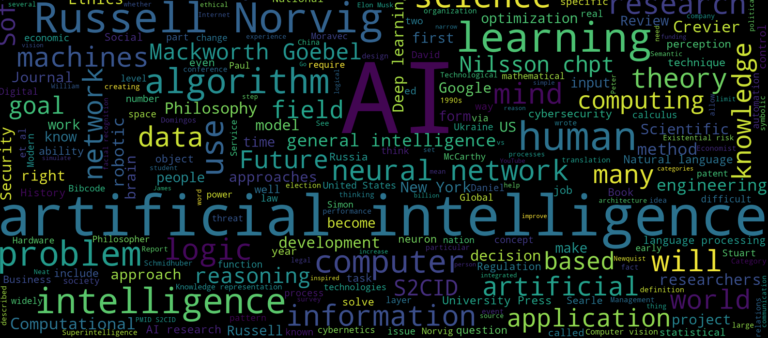In a recent blog post, Vasant Dhar made some interesting points about the possible role of AI in Fed policy:
Could AI help us better understand data and design better economic policy interventions?
Last week, I had lunch with central bankers who wanted to talk to me about AI. They wanted to discuss how they should think about the risks and opportunities associated with the growing presence of AI in financial markets. I asked them the same question I asked Paul: could AI do the central bank’s job? During the meal, they realized that an AI would indeed have a lot to offer in connecting the dots better than humans. Items would include historical data on all past central bank monetary policy decisions, past communications and forecasts, all past and contemporary data available at that time, as well as all literature published on the subject over time. time. In principle, we felt that AI could model the economy better. Its models should at the very least be compared to those currently in use.
But humans should still be blamed, they concluded. After all, you can’t get mad at an AI if it goes wrong.
I can certainly see the value of using AI in monetary policy formulation. But overall, I would still prefer to rely on a political market approach.
Would an AI be able to forecast better than an NGDP futures market? It’s hard to say. An AI forecast can incorporate market forecasts, as well as other factors missed by market participants. In this case, we could think of AI predictions as human/machine hybrids. In the early days of computer chess, a game combining the knowledge of grandmasters and computer programs was better than man or machine working in isolation.
But if AIs are truly superior to the market in some respect, then we can expect market participants to use AI when engaged in trading financial assets. If so, then knowledge from various AIs will be incorporated into market prices.
From this perspective, the addition of AI does not constitute a qualitative change to markets or forecasts. On the contrary, the AI revolution will add many truly intelligent “entities” to the market, making it even more efficient than before. This may be significant, but it is still a more quantitative than qualitative change. Even if some AIs are smarter than any individual, including Jay Powell, no individual AI will be smarter than a market that includes many smart humans and many more smarter AIs. THE wisdom of crowds still holds.
A potentially more promising use of AIs would be to determine the appropriate target of Fed policy (e.g., inflation versus NGDP growth, or levels versus growth rates.) These questions cannot not find an answer by market forecasts, because there is no point in which future data will clearly resolve the question of who was right or wrong. Of course, this is true for a wide range of public policy issues. We could therefore consider asking AIs whether the death penalty increases or reduces the overall utility of society. If this thought makes you nauseous, you can take comfort in the fact that AIs are currently very far from being able to answer this type of questionand it is not certain that they will ever succeed.
PS. David Beckworth asked an AI what she thought about the use of AIs in monetary policy.
(0 COMMENTS)


